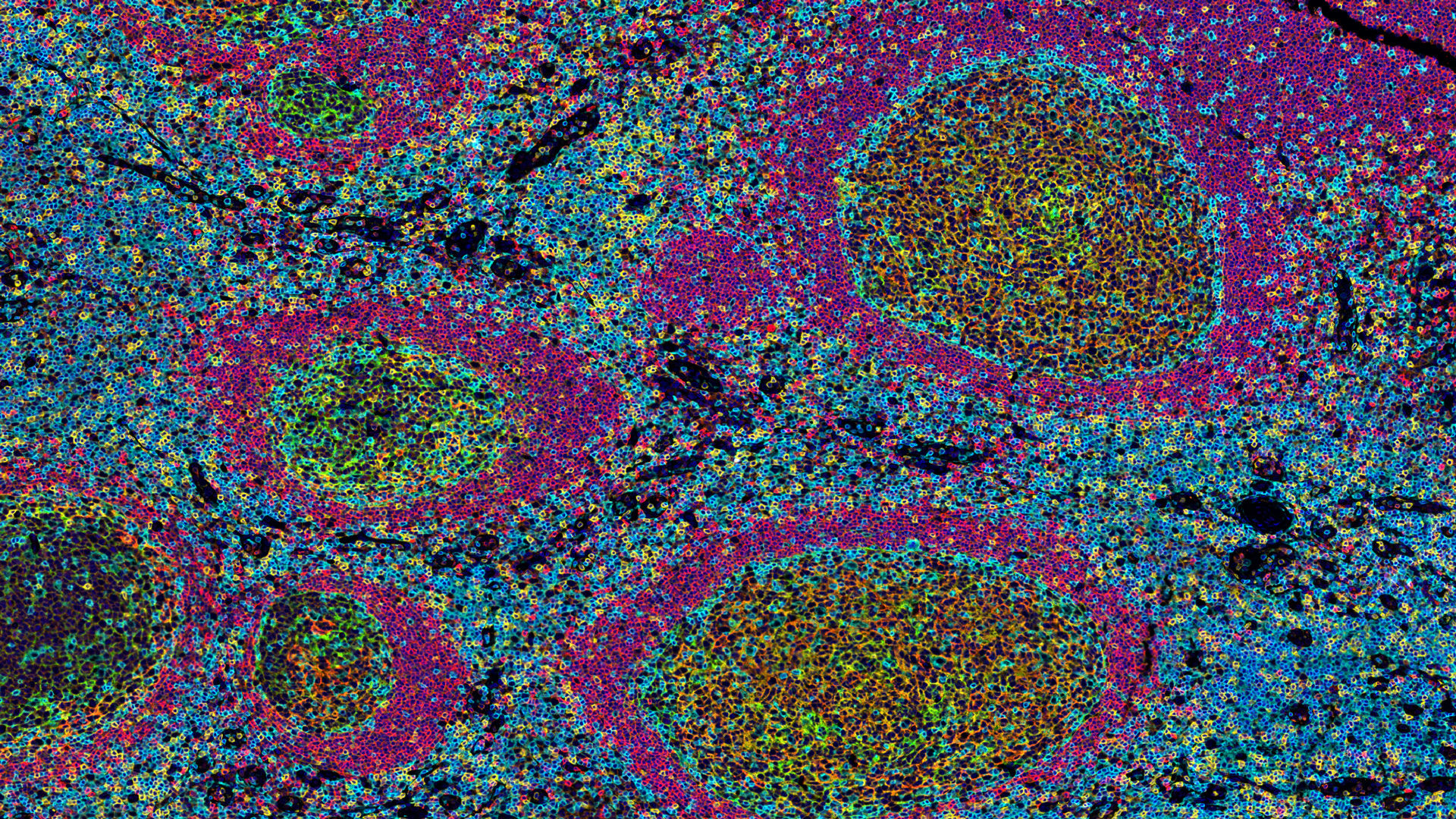Over the past 5 years, our translational team released major papers in the field of cancer immunotherapy, in collaboration with French oncologists from the Institut Bergonié and Gustave Roussy Comprehensive Cancer Centers. Here are 5 key papers to highlight what we’ve learned:
In Clinical Cancer Research (2024): TROP2 is a biomarker of resistance to immune checkpoint inhibition in NSCLC
In patients with advanced Non-Small Cell Lung Cancer (NSCLC) treated with PD-L1 inhibitor atezolizumab, the overexpression of trophoblast cell surface antigen 2 (TROP2) is associated with poorer progression-free survival. TROP2High patients are more likely to benefit from a combination of immunotherapy and anti-TROP2 agents.
Technologies used: Plasma Proteomics, Bulk Transcriptomics, Digital Pathology (IF), Spatial Transcriptomics
In Clinical Cancer Research (2023): IDO1 is a potential therapeutic target for NSCLC patients with inflamed tumor microenvironment and/or TLS
By analyzing NSCLC tumor samples from 891 patients treated with immune checkpoint inhibitors or chemotherapy, we evidenced that IDO1 expression was associated with a favorable clinical outcome (ORR, PFS, OS) upon ICI but not chemotherapy. We also demonstrated that IDO1 is overexpressed within inflamed tumors and noticeably in Tertiary Lymphoid Structures (TLS). These results strongly suggest that targeting the immunosuppressive IDO1 enzyme could be beneficial in patients with inflamed tumors.
Technologies used: T-cell Killing Assay, Germinal Center Reaction Assay, Bulk Transcriptomics, Digital Pathology (IHC/IF), Spatial Transcriptomics
In Annals of Oncology (2022): Acetaminophen negatively impacts cancer immunotherapy efficacy
Metabolomic analysis of plasma samples collected before cancer patients underwent immunotherapy revealed that the presence of Acetaminophen (APAP) correlates with a limited response to immune checkpoint blockade. This negative impact was validated in two independent prospective cohorts and further strengthened by preclinical evidence, both in vitro and in vivo. Altogether, our findings suggest that the use of Acetaminophen, one of the most widely used drugs, limits cancer immunotherapy efficacy and should be taken with caution.
Technology used: Flow cytometry, Plasma Proteomics, In Vitro Assays, In Vivo Experiments
In Nature Cancer (2021): The presence of mature TLS is a predictive biomarker of anti-PD1/PD-L1 axis blockers efficacy in patients with advanced cancer
We analyzed the presence of Tertiary Lymphoid Structures (TLS) in tumor samples from 328 patients with solid tumors treated with anti-PD1 or anti-PD-L1 monoclonal antibodies. We found that the presence of mature TLS is predictive of improved clinical outcome (objective response, progression-free survival, overall survival).
Technology used: Digital Pathology
In Annals of Oncology (2021): Elevated LIF level in serum is a predictive biomarker of resistance to immune checkpoint inhibition
Using Olink-based proteomics, we analyzed the plasma samples of 387 patients with advanced cancer treated with immune checkpoint inhibitors. High levels of Leukemia inhibitory factor (LIF) emerged as indicative of poor clinical outcome. The study identifies LIF as a potential target to improve the efficacy of cancer immunotherapies.
Technology used: Plasma Proteomics
That’s it for now! If you wish to get a full picture of our scientific production, please take a look here.
And if you have a translational research project in mind, let’s talk about it. We’ll be happy to help.

